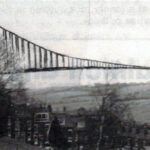16 February 1886: Clifford Allbutt explains to James Crichton-Browne why three years later he was to trade a lucrative medical consulting career in Leeds for a less well paid Commissionership in Lunacy in London
Humphry Davy Rolleston. 1929. The Right Honourable Sir Thomas Clifford Allbutt. London: Macmillan. Get it:
.Unedited excerpt
If an excerpt is used in the book, it will be shorter, edited and, where applicable, translated.
In April 1889 Allbutt, rather suddenly as it seemed to the world at large, and indeed to all except his most intimate friends, accepted a Commissionership in Lunacy, and left Leeds for London. In reality this was only the realization of an opportunity of escaping from a life of strain that had for some time been too strenuous. The accumulated demands of a consulting practice, extending from the Trent to the Tees, numerous official responsibilities and other duties, although his physiciancy to the Leeds Infirmary came to an end in 1884 and he wisely always took six weeks’ holiday in Switzerland, were beginning to exact their toll. Indeed, an eminent London physician warned him that a breakdown would follow within six months if he continued to lead his accustomed life, a verdict which coincided with his own impression. The history of his appointment as Commissioner may be told in the following account which Sir James Crichton-Browne has most kindly provided: “When lecturing ‘On the Education of the Hand’ to the Leeds Philosophical and Literary Society in February 1886, I was Allbutt’s guest, and when driving out to his house at Meanwood after the lecture, he said: ‘It is this hill that finishes me off. I am busy in my rooms in Park Square all the forenoon; consultations at Dewsbury, Halifax, Harrogate, and so on fill up all the afternoon, and then when I get back I have this long drive, am generally late for dinner, and after that don’t feel equal to the work I should like to do. As you know, I have had tempting invitations to go to London, but there I suppose it would be pretty much the same thing. What I want is an appointment that would involve less fatigue and give more leisure.’ ‘I quite sympathize with you,’ I said, ‘but unfortunately there is no public medical appointment in this country that is worthy of your acceptance. You are making a very large income, and the salary attached to the best public medical appointments, those of the Lord Chancellor’s Visitors in Lunacy and of the Chief Medical Officer of the Local Government Board, does not exceed £1500 a year.’ ‘That,’ he replied, ‘would satisfy me. I have some private means and have saved something, and I should accept one of those appointments were it offered to me.’ I pointed out to him as forcibly as I could the somewhat crippling nature of such appointments from a medical and scientific point of view, and the fact that they all meant arduous work, although of a different character from that in which he was then engaged. But he adhered to his wish to secure such an appointment, and I promised to let him know when there was likely to be a vacancy in any of them.
“In March 1889 I ascertained that Dr. Rhys Williams, one of the Commissioners in Lunacy, who was in bad health, was about to resign and told Allbutt so, and when that resignation almost immediately took place Allbutt’s application was sent in. There were many eligible candidates, but Lord Halsbury had no hesitation in selecting Allbutt. His qualifications as a physician were pre-eminent, and he had some special lunacy experience in the work he had done at the West Riding Asylum in my time, and as one of the Committee of Visitors of that Institution, which he had afterwards become. Allbutt was appointed a Commissioner on April 25, 1889, and held that office until April 1892, when he was appointed Regius Professor of Physic in the University of Cambridge. On his resignation of the Commissionership, a resolution was passed by the Board expressing regret at the loss of his services and the appreciation and regard in which he was held.”
Comment
Comment
Date from report of Crichton-Browne’s lecture in the Leeds Mercury.
With regard to his professional income in Leeds … he told a colleague of his that he had once made over £6000 in a year, and that after he was fairly started he generally made between £4000 and £5000 a year. A house physician of his during the height of Allbutt’s popularity recalls the somewhat grim joke in medical circles that “no good Yorkshireman would rest quietly in his grave if, before his death, he had not been seen by Clifford Allbutt”.
Something to say? Get in touch
Similar
 Reproduction through the blind benevolence of Leeds Other Paper (RIP).1 April 1979: Amid motorway mania in Leeds, West Yorkshire Council is today to reveal plans to link Chapeltown and Woodhouse by a ¼-mile suspension bridge across Meanwood Beck
Reproduction through the blind benevolence of Leeds Other Paper (RIP).1 April 1979: Amid motorway mania in Leeds, West Yorkshire Council is today to reveal plans to link Chapeltown and Woodhouse by a ¼-mile suspension bridge across Meanwood Beck
Comment
Comment
Via Remember LOP, a feed by Tony Harcup which pays tribute to some splendid local journalism, unimaginable today.
Council sources claim the scheme was a victim of the first wave of cuts imposed by Margaret Thatcher following her General Election victory a month later.
Something to say? Get in touch
Search
Donate
Music & books
Place-People-Play: Childcare (and the Kazookestra) on the Headingley/Weetwood borders next to Meanwood Park.
Music from and about Yorkshire by Leeds's Singing Organ-Grinder.


 Bluesky
Bluesky Extwitter
Extwitter